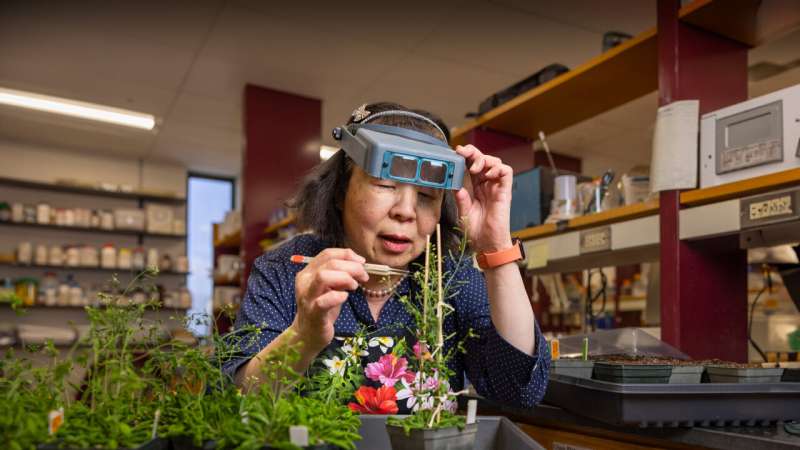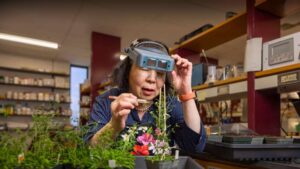
A recent breakthrough in plant biology may revolutionize crop breeding techniques, paving the way for new species with enhanced agricultural traits. Researchers at the University of Massachusetts Amherst and Shandong Agricultural University have made significant strides in understanding how plants recognize and reject certain pollen grains, a process critical for generating hybrid crops. This research was published in the esteemed journal Science on November 21, 2025.
The study focuses on a phenomenon known as “interspecific incompatibility” (ISI), which prevents pollen from one species, such as broccoli, from fertilizing a different species, like kale. This mechanism is essential for maintaining genetic diversity and avoiding inbreeding among plants. According to Alice Cheung, Distinguished Professor of Biochemistry and Molecular Biology at UMass Amherst and a senior author of the study, the molecular basis of ISI has remained largely a mystery compared to the well-understood mechanisms of self-incompatibility.
The research team utilized members of the Brassicaceae family, which includes common vegetables like cabbages and canola, to investigate this complex mechanism. The findings reveal how plants communicate during pollination and determine whether to accept or reject incoming pollen grains based on specific chemical signals.
At the heart of this process is a protein known as SRK, which plays a critical role in controlling self-incompatibility within the stigma of Brassica plants. When pollen from a different species arrives, SRK recognizes a unique chemical signal called SIPS, prompting the plant to reject the pollen. This interaction is only part of the equation; it also involves another enzyme, FERONIA, which Cheung and co-senior author Qiaohong Duan have extensively studied. The interaction between FERONIA and the SIPS-SRK complex produces a reactive chemical known as ROS, effectively blocking the pollen from entering the pistil.
The researchers propose innovative breeding strategies to overcome the incompatibility barriers between different Brassica species. By identifying and manipulating these molecular interactions, they aim to accelerate the development of new crop varieties that can thrive in changing agricultural conditions, thereby contributing to food security.
This research underscores the importance of understanding plant reproductive mechanisms, particularly as global demands for food increase. The ability to hybridize distantly related species could lead to crops with improved resilience, nutritional value, and yield potential.
For further details, the complete study can be accessed through the journal Science, with the full citation: Yunyun Cao et al, “Pan-family pollen signals control an interspecific stigma barrier across Brassicaceae species,” DOI: 10.1126/science.ady2347.
The collaborative efforts of UMass Amherst and Shandong Agricultural University highlight the global nature of agricultural research and its critical role in addressing future food challenges.







